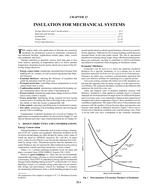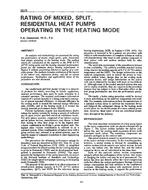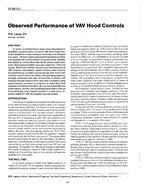Click here to purchase
In terms of safe hygrothermal performance, the building envelope requires correct rain protection, air tightness, sufficient dry-out capacity and the correct location and tightness of the water vapor barrier. The objective of this research was to evaluate the impact of the rainwater ingress and dry-out capacity on the hygrothermal performance of an MHM external wall with the ETICS. Based on the validated hygrothermal simulation model, the hygrothermal performance of mass timber wall construction with ETICS was analysed in Delphin software. Estonian moisture reference year for mold growth as boundary conditions and wind-driven rain load with 1% of ingress were used in the analysis. Hygrothermal performance of the studied wall was evaluated by the risk of mold growth on the material surface, which was measured with a mold growth index. The results of this study showed that using a vapor and airtight membrane between ETICS and MHM panels can prevent high humidity on the MHM panel surface in case of 1% of rainwater penetration and thereby avoids the risk of mold growth on a wooden surface. The given solution works only if the thermal insulation composite system provides sufficient dry-out towards the exterior and, in this case, EPS insulation is not recommended as it poses a high risk of mold growth on the MHM panel surface. In addition, based on the results it was recommended to keep the initial moisture content in mass timber panels below 17% to prevent an extended dry-out period and thereby prevent the possible risk of mold growth.
Citation: Thermal Buildings XIV 2019
Product Details
- Published:
- 2019
- Number of Pages:
- 9
- Units of Measure:
- Dual
- File Size:
- 1 file , 1.3 MB
- Product Code(s):
- D-Bldgs19-064


